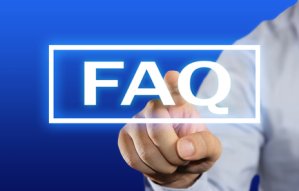Frequently Asked Questions
 What is melatonin?
What is melatonin?
Melatonin is a hormone which the human body produces at nightfall. It is secreted naturally by the pineal gland (which is located at the center of the brain) in response to nightfall.
What is melatonin’s role?
Melatonin regulates the body’s 24-hour clock (also known as the circadian rhythm). The pineal gland secretes melatonin in response to darkness in order to induce drowsiness, which causes us humans to sleep. Besides functioning as a natural “sleep inducer”, melatonin functions as an antioxidant that repairs cellular damage during our sleep.
Who needs melatonin supplements?
Basically, it is people who suffer from insomnia who can benefit from a melatonin supplement. Those who are in the habit of taking sleeping pills are obvious candidates for melatonin, as this is a safe and natural way to induce sleep.
Is melatonin addictive?
No, melatonin has not been shown to cause any kind of addiction, not even in long-term use.
Is melatonin safe to use?
In general, melatonin is well-tolerated at normal doses. Minor side effects have been reported, including an odd taste in the mouth, headache and vivid dreams/nightmares. The majority of users, however, do not encounter any adverse effects.
Can melatonin be overdosed?
Involuntary loss of consciousness and similar problems have not been reported in connection with intake of extremely high melatonin doses.
Is it safe for me to use melatonin if I am pregnant or breastfeeding?
Pregnant or lactating women are generally advised no to use melatonin.
Will melatonin affect my ability to drive a car?
Melatonin has been shown to result in reduced alertness for several hours after intake. The substance should therefore not be taken before driving or operating machinery.
Why does nightshift work disturb your sleep?
People who work at night (assembly line workers on nightshifts, health professionals on night duty, airline cabin crew members etc.) are awake at hours where they should ideally be at sleep. This disrupts their day-night-cycle by interfering with their body’s melatonin secretion. When the body gets exposed to light, its melatonin production is blocked.
Will turning on the light in the bathroom ruin my sleep?
Even brief exposure to artificial light can disrupt your melatonin production. Therefore it is best not to turn on the light in the bathroom if you have to get up at night. Instead, have a nightlight in the hallway next to the bathroom so the light you are exposed to is dim, yet sufficiently bright to allow you to see what you are doing.
Can melatonin replace prescription sleeping drugs?
Many people who are in the habit of using prescription sleeping drugs find that melatonin helps them phase out their synthetic medicine. In many cases, people who have suffered from insomnia are able to replace their sleeping pills with a melatonin supplement.
Are all melatonin supplements equally good?
No, there are vast quality differences, all depending on what type of melatonin supplement you purchase. It is advisable to stick with high-quality melatonin preparations which are made with pharmaceutical grade ingredients. This type of supplement is manufactured under strict pharmaceutical control, thereby limiting your risk of unwarranted ingredients.
Does melatonin prevent jetlag?
Yes, many people who travel across several time zones (transatlantic travelling) find that melatonin helps them regain their normal sleep pattern. This is because melatonin “tricks” the body into thinking that it is time to go asleep at a time where it had gotten used to a different day-and-night rhythm. Melatonin helps people adjust when they reach their destination and to readjust when they return back home.
Can melatonin prevent cancer?
Is it too early to say if melatonin is able to prevent cancer. However, science has demonstrated a link between nightshift work and increased risk of cancer, suggesting that melatonin may have a role. It is known that melatonin is a powerful antioxidant that protects cells and helps the body repair cellular damage during sleep


